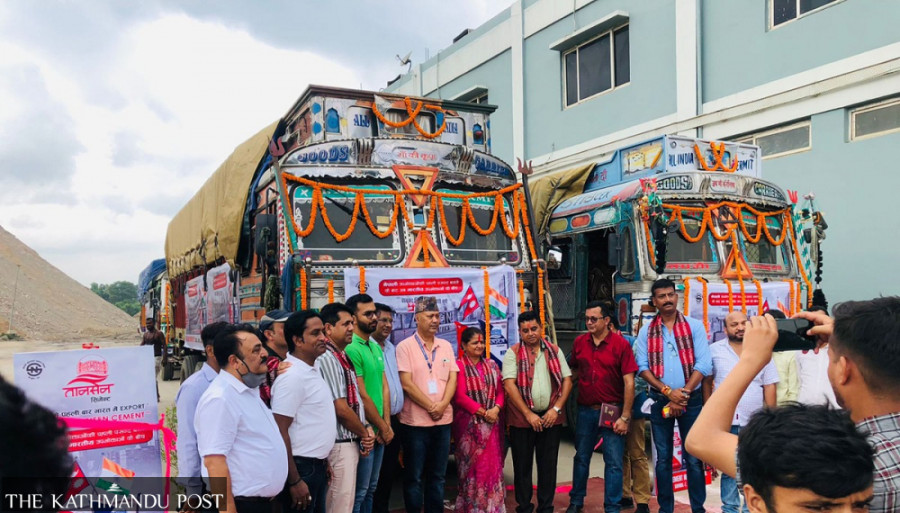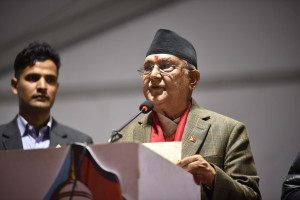Editorial
New India, old thinking
Landlocked Nepal has no option but to import at least some raw materials and expertise from China.
Even at the best of times, there is no shortage of irritants in Nepal-India relations. It would be wise for the governments of both the countries not to add to the list. Yet that is not how India sees things. For over three months, the southern neighbour has stopped importing most categories of Nepali goods. The reason is that the manufacturers of these products don’t have the Bureau of Indian Standards (BIS) certificates. These certificates supposedly guarantee that the products India imports are of high quality. Yet it is an open secret that when New Delhi imposed mandatory certification in 2020, it did so to stop the import from the neighbourhood of all goods with Chinese components. A related problem is that Indian inspection teams have not visited the Nepali factories in order to certify their products, even months after these factories applied for the certification. This new episode of import restriction raises many questions.
For example, why have the imports been stopped now even though the BIS certificates were made mandatory in 2020? How can India stop the import of goods with Chinese components when even Indian manufacturers—be they pharmaceutical companies or steel plants—would come to a halt without the import of raw material from China? India agreed to help build a standard certification lab in Nepal, way back in 2009. Why hasn’t the lab been set up yet? And at a time when India-China relations are reported to be warming up thanks to the breakthrough in their border talks, why continue to take such a rigid position on the import of goods with Chinese components? In informal talks, the decision-makers in New Delhi tend to pass the buck to the lower level functionaries when such issues are raised. For instance, the latest restrictions on imports of goods is apparently not in line with New Delhi’s policies; it is the Indian custom officials and other bureaucrats who are putting up the hurdles. There is some truth in this argument. Of late India is so occupied with big powers like the US, China and Russia, the Indian political leadership has little time for smaller countries in the neighbourhood. They thus ‘delegate’ the handling of these countries to junior bureaucrats and spies.
But if so, it is a disastrous policy. India will struggle to be a credible actor on the global stage if it first cannot establish such credibility in its own neighbourhood. We have already seen the dangers of New Delhi’s excess reliance on bureaucrats to handle regional affairs, most recently in Bangladesh. When students there rose up in arms, the Indian political leadership was caught off guard. Perhaps because of this neglect of the neighbourhood, India’s old ‘backyard’ is slowly slipping out of its control. It won’t be an exaggeration to say that if the Indian political leadership wants, this issue of import restrictions can be solved overnight. Really, why would they let small irritants snowball into a full-blown crisis? In Nepal’s case, India must understand that the landlocked country has no option but to import at least some raw material and expertise from China. Making such imports is in no way tantamount to Nepal going into ‘Chinese hands’ as some hyperventilating Indian TV anchors like to put it. That is impossible given the multi-dimensional connectivity between Nepal and India. India has long since shaken off its British shackles, but as Nepali manufacturers and exporters now aver, rightly or not, the colonial hangover remains.




 16.12°C Kathmandu
16.12°C Kathmandu












%20(1).jpg&w=300&height=200)

